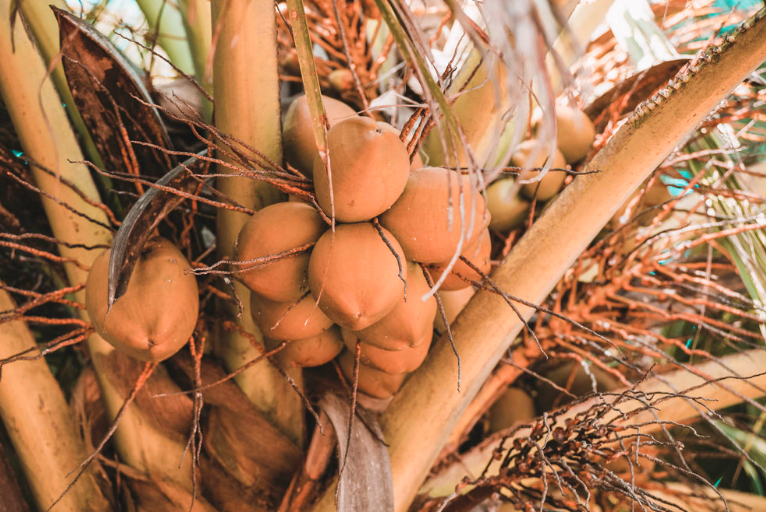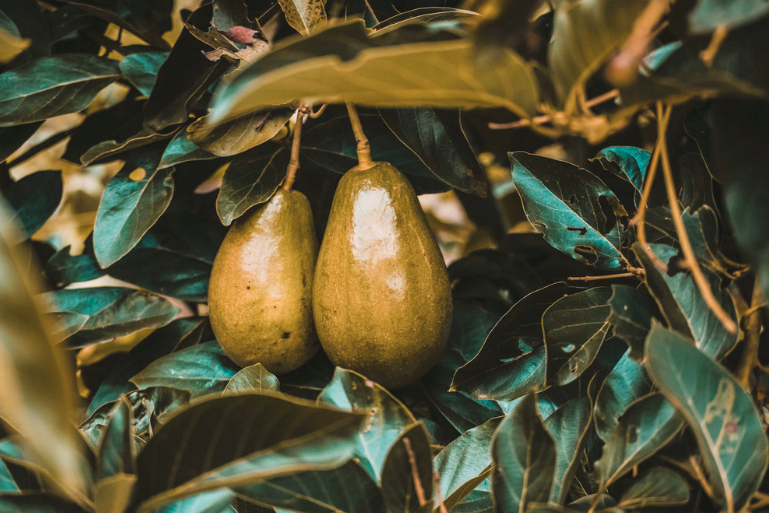11 Best Natural Skincare Ingredients – And How to Make your own Skincare
What are the best ingredients to keep in mind when choosing products or making your own? The following article is a rundown of my favourites, and some tips and recipes to help you make your own. Where to start?
Asking yourself if you could eat your skincare is a good place to start when choosing ingredients. Using only unprocessed ingredients on your skin that you would cook with will have your skin glowing with health. Using chemicals on our bodies should not be the norm, and with the following information you’ll be well on your way to healthy, chemical free, good for you skincare. If you are making your own products – purchasing a few essentials like coconut oil, shea butter, rosehip oil and essential oils is really affordable. You can get all of these ingredients online or at a health food store or online – our favourite trusted stockists in Australia are Auroma, Perfect Potion and New Directions for bottles and containers.
My Top 11 Natural Ingredients for Skincare
Coconut Oil (Cocus nucifera)
Already a common staple product in any kitchen, Coconut oil penetrates the skin deeply and helps it stay moisturised due its saturated fatty acids – capric, caprylic and lauric acid. These fatty acids are antibacterial and antifungal and may help to soothe common skin infections and reactions. You can use coconut oil topically on your skin and hair (as a hair mask), to remove makeup, or use as a base for body scrubs in combination with a coconut sugar or coffee granules. Ayurvedic medicine uses coconut oil for ‘oil pulling’ – swishing a thumbnail size amount in the mouth after brushing teeth for ten minutes has been shown by a large body of anecdotal evidence to help reduce plaque in the mouth and strengthen gum tissue.
Calendula infused oil: (Calendula officinalis)
You can make your own calendula infused oil using dried calendula flowers and olive oil, or buy it. In western herbal medicine, calendula is considered a ‘wound healer’ and is therefore a go-to remedy for all things itchy and dry: Psoriasis, eczema, scars and just plain old flaky skin. Calendula oil contains broad-spectrum antimicrobial and anti-inflammatory properties. Mix with shea butter or coconut oil for a moisturising and healing body balm, or mix with rosehip, avocado and rosehip oil for luxurious facial oil. For any scars mix with rosehip oil and massage daily.
Aloe Vera (Aloe barbadensis)
Aloe vera has been used topically and internally for centuries. It is powerfully anti-inflammatory and cooling. Aloe vera makes a great gel base for products if you’d like a more water-based item – such as a face serum or for nourishing sunburnt skin. It is moisturising without being oily, decreases red and itchy skin conditions and tightens pores due to its astringent qualities. Aloe has also contains anti-fungal properties. The inner leaves of the plant hold more than seventy-five potentially active molecules – amino acids, enzymes, fatty acids, salicylic acid, vitamins and minerals. Buy only pure aloe vera from a reputable source such as this aloe vera as a lot of store bought gels contain preservatives and chemicals. Or better yet – grow your own, its super simple and keeps on giving.
Avocado oil (Pursea americana)
Avocado is nature’s fattiest offering – rich in fat soluble vitamins A, D and E – all able to penetrate deep into the skin’s layers. Topical application of avocado oil is shown to increase collagen production, as it contains essential fatty acids perfect for healing dry, flaky skin. To make a wound or scar healing oil or a super nourishing elixir for the face, combine with calendula oil, or apply after aloe vera gel for dry, sunburnt or inflamed skin. Eating an avocado a day will also help provide the essential fatty oils necessary for beautiful skin, as every cell in the body is surrounded by a fatty membrane. So – feed your skin – beauty from the inside out!
Shea Butter (Vitellaria paradoxa)
Shea butter is luxuriously thick and nourishing especially effective for dry and agitated skin. It’s silky smooth and has a lovely subtle smell; making an ideal base for lip balm or body butter when mixed with your favourite essential oil. Shea butter is 60% fat so penetrates well – delivering key anti-inflammatory, moisturising and antioxidant compounds in the form of vitamins and collagen; and fatty acids oleic, stearic, palmitic and linolenic acid. Interestingly, shea butter has an SPF of 6 and provides the skin with light sun protection. See Wellness Mama’s excellent recipe for whipped body butter.
Rosehip Oil (Rosa canina or Rosa moschata or Rosa rubiginosa)
Freely available in any health food store, add to any facial oil, body butter, lip balm or moisturiser. Rosehip oil is rich in fatty acids – omega 3 and 6 essential fatty acids and antioxidants vitamin A and E. It contains small amounts of vitamin A in the form of beta carotene, therefore is a good free-radical scavenger that prevents ageing. Also good for scars and blemishes and acne –prone skin. Very good for use in sun-damaged and dehydrated skin following application of aloe gel, and sinks in fast without leaving a slimy film.
Green Tea (Camelia Sinensis)
The polyphenols in green tea act as potent antioxidants, slowing down the ageing process of the skin and scavenging damaging free radicals. Green tea wash is a great way to manage acne-prone skin due to its antibacterial cachetins, providing gentle cleansing and antibacterial action. Green tea can also relieve red and inflamed skin and with its astringing action is great at reducing pore size. How to make green tea wash: Steep two green tea bags in one cup boiling water until cooled. To apply either soak cotton pads with cooled green tea wash and swipe over the skin or place in a spritz bottle and spray onto skin. Let it dry off then rinse with cool water, follow you’re your favourite moisturiser such as argan oil (for acne). Keep in fridge and remake every four days.
Argan Oil (Argainia spinosa)
Argan oil comes from the nut of the fruit of the argan tree in Morocco. This precious, somewhat rare oil is rich in both omega-9 and omega-6 fatty acids, both of which aid acne-prone skin. While omega-6 is anti—inflammatory and moisturising, omega-3 helps to improve skin permeability, ensuring ingredients sink deep into the epidermis with oily residue. Interestingly, argan oil’s comedogenic rating (how much it clogs pores) is zero, making it the perfect carrier oil for acne sufferers. Combine with lemon and frankincense essential oils and green tea wash for problematic skin. Argan oil is possibly best known for its use in hair products. Its non-greasy properties make it an ideal overnight hair repair treatment. Simply rub a few drops into scalp all the way down to the ends and leave in over night. Remember to cover your pillow with a towel, and rinse off I the morning. Good quality, organic cold pressed argan oil can be expensive so we recommend this one from Swuisse
Lemon essential oil (Citrus limon)
Lemon essential oil when applied topically has been shown to have anti-inflammatory, antibacterial and antioxidant properties that reduce free radicals that cause damage to the skin. Lemon oil can help to rejuvenate and brighten skin, and smooth fine lines. Lemon essential oil must be diluted into carrier oil at no more than 2% as it is very potent. Lemon oil also contains powerful antibacterial and anti-inflammatory properties: For an anti-aging night oil, combine a few drops of lemon and frankincense essential oil with rosehip oil
as a carrier and massage into skin before bed. Use only at night as some studies show lemon oil can be can be phototoxic to the skin if time is spent in the sun after application.
Sesame Oil Coffee Scrub
Not technically medicinally beneficial but this natural exfoliant feels great! Making your own exfoliant scrub couldn’t be easier or more affordable. Simply combine two tablespoons of finely ground coffee, mix with a little sesame oil and a squeeze of lemon juice making a paste. Sesame oil is warming oil that moisturises wonderfully and provides a slippery barrier so that you do not scratch the skin, whilst the lemon juice provides a brightening, beneficial acidifying effect. Exfoliate your skin in the shower no more than once a week and be gentle, not wanting to break the skin. Exfoliating sloughs of old layers of dead skin and helps to invigorate the skin, bringing fresh blood to the surface. Follow with some soothing green tea face mist and rosehip oil.
Jojoba Oil (Simmondsia chinensis).
Jojoba is a fantastic carrier (or base oil) to use in your skincare formulations. Indigenous Americans traditionally used jojoba used it to treat burns, sores and cosmetics. The oil is essentially a wax ester that has a similar structure to that of our human skin sebum. Sebum is what helps you stay moisturised and looking youthful, filling out wrinkles and fine lines. Jojoba contains omega-6 and fat-soluble vitamins A, D and E, and is very good for dry and chapped skin due to its ability to speed up wound closure. Jojoba also makes the perfect makeup remover even for tough waterproof mascara. Or for stimulating hair growth, massage gently it into the scalp with a little rosemary and lavender essential oil.







